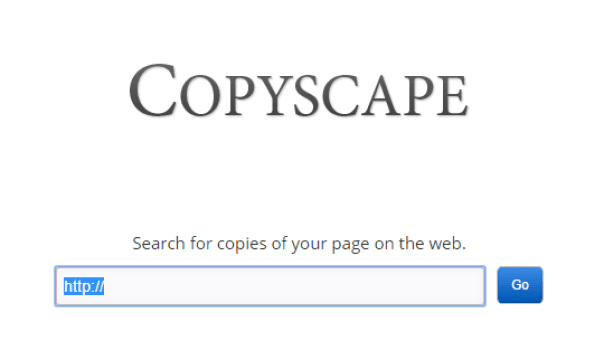
Business writing is an essential aspect of any organization, as it is used to communicate with clients, colleagues, and other stakeholders. In today’s fast-paced business environment, it is more important than ever to have clear and concise communication to build trust and credibility, streamline decision-making processes, and maintain positive relationships.
Thesis statement: Clarity and conciseness are essential elements in business writing as they help ensure effective communication and avoid confusion.
Business writing is a vital tool that is used to convey information, persuade others, and build relationships. However, it is not always easy to achieve the necessary level of clarity and conciseness in written communications. This article will explore the importance of clarity and conciseness in business writing, as well as provide tips and strategies for achieving these important qualities in your business writing.
The importance of clear and concise communication cannot be overstated when it comes to personal statement-writing services in the business world. Clear and concise writing is essential for building trust and credibility with clients, streamlining decision-making processes, and maintaining positive relationships. On the other hand, unclear and verbose writing can lead to misunderstandings, mistakes, and lost business opportunities, which can ultimately harm the reputation and success of an organization. Personal statement writing services must keep this in mind while crafting their documents.
The Importance of Clarity in Business Writing
Explanation of what clarity means in business writing
Clarity refers to the degree to which a piece of writing is easy to understand and free of confusion. Clarity in business writing is essential for ensuring that the intended message is received and understood by the intended audience.
Examples of how unclear writing can lead to misunderstandings and mistakes:
- Miscommunication of instructions or deadlines
- Loss of business opportunities due to confusion
- Negative impact on customer satisfaction
When business writing is unclear, it can lead to a variety of problems. Miscommunication of instructions or deadlines can result in mistakes, delays, and lost business opportunities. Confusion can also lead to negative impacts on customer satisfaction, as clients may not understand the message or may perceive the organization as unprofessional.
Tips for achieving clarity in business writing:
- Use simple language and avoid jargon
- Be direct and specific in your writing
- Use headings and bullet points to organize information
- Have someone else review your writing for clarity
To achieve clarity in business writing, it is important to use simple language and avoid jargon. This can make it easier for the reader to understand the message and can help to build trust and credibility. It is also important to be direct and specific in your writing and to use headings and bullet points to organize information. Finally, having someone else review your writing can help to identify areas where clarity may be lacking.
The Importance of Conciseness in Business Writing
Explanation of what conciseness means in business writing
Conciseness refers to the degree to which a piece of writing is brief and to the point. Conciseness in business writing is essential for ensuring that the intended message is received and understood by the intended audience without overwhelming them with unnecessary information.
Examples of how verbose writing can be overwhelming and time-consuming for the reader:
- Time wasted reading and deciphering long-winded emails
- Loss of focus or attention due to information overload
- Negative impact on the perception of professionalism
“The Intersection of Clarity and Conciseness”
A well-crafted business profile relies heavily on clear and concise communication. To effectively convey information and make a strong impression, it is important to strike a balance between being clear in your message and being concise in your delivery. This can be challenging, but mastering the art of clear and concise communication can greatly benefit your business profile.
First, let’s define clarity. Clarity is the ability to communicate a message in a way that is easily understood by the intended audience. This means using simple language, avoiding jargon, and logically organizing your thoughts. Clarity is important because it ensures that your message is received and understood correctly.
Conciseness, on the other hand, is the ability to convey a message in the fewest possible words without sacrificing meaning. This means avoiding unnecessary words and phrases, being direct, and getting to the point quickly. Conciseness is important because it helps to keep the audience engaged and prevents them from becoming bored or lost in the message.
The intersection of clarity and conciseness is the sweet spot where your message is easily understood and delivered efficiently. To achieve this, you must strike a balance between the two. Here are some tips to help you find this balance:
Be specific: Use specific words and phrases to describe your ideas.
Eliminate jargon: Avoid using technical terms or industry-specific language that your audience may not understand.
Be direct: Get to the point quickly and avoid beating around the bush.
Use simple language: Use language that is easy to understand and avoid using complex sentence structures.
Organize your thoughts: Logically organize your thoughts to make it easy for your audience to follow your message.
By following these tips, you can ensure that your message is both clear and concise and that it is delivered efficiently to your intended audience. Clear and concise communication is a skill that takes practice, but with time and effort, you can become an expert in finding the intersection of clarity and conciseness.
Conclusion
In summary, business writing plays a crucial role in communication within an organization, especially in the context of social media. Clarity and conciseness are important elements in business writing as they help ensure effective communication and avoid confusion. Clarity refers to the degree to which a piece of writing is easy to understand and free of confusion, while conciseness refers to the degree to which a piece of writing is brief and to the point. Unclear and verbose writing, especially on social media platforms, can lead to misunderstandings, mistakes, and lost business opportunities, which can ultimately harm the reputation and success of an organization.
To achieve clarity and conciseness in business writing, particularly on social media, it is important to use simple language, be direct and specific, use headings and bullet points to organize information, and have someone else review your writing. Finding the intersection of clarity and conciseness can be difficult, but it is essential for effective communication in business writing, especially on social media platforms.








